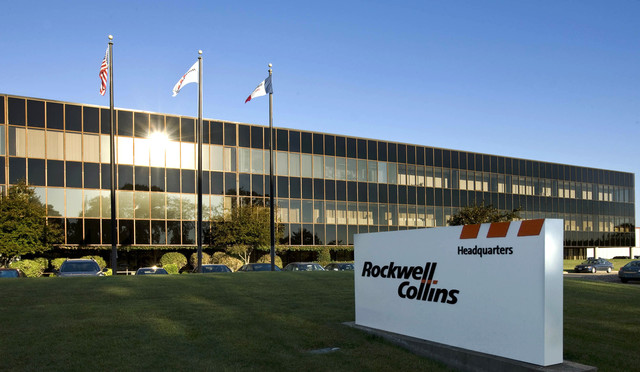
By Dave DeWitte
CEDAR RAPIDS—With an important new business segment, a series of major Boeing wins and versions of its newest flight deck going into production, Rockwell Collins is looking to hire and expand in the Corridor.
Rockwell Collins CEO Kelly Ortberg told shareholders on Feb. 5 that the company has achieved its goal of returning to top-line sales growth, and that not all of that growth has come from the $1.4 billion acquisition of Maryland-based ARINC in December 2013.
Mr. Ortberg said that the company’s Commercial Systems business grew by 6 percent in fiscal 2014, and Government Systems, while down 2 percent, has stabilized after reductions in recent years.
Since acquiring Maryland-based ARINC Inc. for $1.4 billion in late 2013, Rockwell Collins has formed a new business unit called Information Management Systems. Mr. Ortberg said it’s now 12 percent of the company’s sales and the fastest growing business segment going forward.
Mr. Ortberg called the Dec. 16 announcement that Rockwell will supply the main cockpit electronics for the Boeing 777X “a transformational win,” and that Rockwell Collins now has major cockpit electronics positions for Boeing’s 787, 737, 747-8 and 777X aircraft.
“They don’t build any other airplanes,” Mr. Ortberg said. “We did a full sweep of the flight decks.”
The company’s Pro Line Fusion flight decks are going from labs into production, Mr. Ortberg added.
In an interview, Mr. Ortberg said the beginning of full-rate production on the big programs will mean more hiring by Rockwell Collins in Iowa.
“We’ll see a nice cadence of growth over the next five years,” Mr. Ortberg said. He also projected that in five years, the company will generate more revenue from international markets than from the United States.
The production ramp-up will start out with instrumentation and communications systems for the Airbus A350 XWB, which received FAA certification in December. It is Airbus’ newest mid-sized, long-range passenger jet.
Mr. Ortberg said Rockwell Collins has also scored a series of important avionics wins in the rotary wing market, and has been selected as sole source supplier of helmet-mounted displays for the F-35 joint strike fighter by the Naval Air Systems Command.
The opportunity to provide “connected” flight deck solutions with the company’s new Information Management Solutions division will also drive growth, Mr. Ortberg said. ARINC’s ground-based networks will provide connectivity that Rockwell Collins will use to bring information-enabled cockpit and cabin systems to the market.
Additional mergers are expected to realize that strategy of adding value with information flowing from aircraft cockpit to ARINC network, Mr. Ortberg said. They are likely to be what the company terms “bolt-on” acquisitions of smaller companies that provide specific technologies or software.
The fiscal 2015 outlook is for high-single-digit growth in the company’s Commercial Systems business and “near double-digit” sales growth in the Information Management Systems business.
On Jan. 23, Rockwell Collins reported that sales for the first quarter of its fiscal year ending Dec. 31 are up 16 percent year-over-year, including 4 percent organic growth that excludes the influence of the ARINC acquisition. Earnings per share rose 29 percent year-over-year.
In a conference call with Wall Street analysts, Mr. Ortberg and Chief Financial Officer Patrick Allen said that low petroleum process could boost the company’s aftermarket sales in the corporate jet market and air transport market later in the year, as more aircraft owners use fuel savings to make discretionary equipment upgrades. They said currency exchange markets will have a roughly $30 million negative impact on revenue, primarily due to the strength of the U.S. dollar versus the Euro.
Rockwell Collins shareholders re-elected Mr. Ortberg, board member Cheryl Shavers and Chairman Anthony Carbone to the board of directors at the meeting, the company’s first since former CEO Clay Jones left the board.




